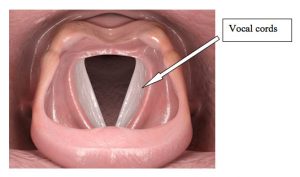I bought my first brand new car in 2004. I vividly remember driving away from the car dealer and tooling down the street feeling downright dizzy with glee riding in this snazzy vehicle.
 The paint on the car was bright and shiny and the body was pristine without a single scratch or the tiniest ding. The ride was silky smooth and super quiet, the seats were soft and cushy, and the upholstery was without a spot or blemish. It was thrilling—till I got the first bump in the rear fender from somebody’s lame parking job. I knew that perfection doesn’t last forever but still, my bubble was burst! I still drive that same car only now the ride is bumpier, the seats are faded, the body has dings and scrapes, and it’s not so shiny any more. (But it’s a Honda and will probably keep on going for another 100,000 miles … if I can last that long.) And so with our bodies when we’re young we often have this fantasy that we’ll live forever and never grow old (like those other people), but we do change over time. Everything does.
The paint on the car was bright and shiny and the body was pristine without a single scratch or the tiniest ding. The ride was silky smooth and super quiet, the seats were soft and cushy, and the upholstery was without a spot or blemish. It was thrilling—till I got the first bump in the rear fender from somebody’s lame parking job. I knew that perfection doesn’t last forever but still, my bubble was burst! I still drive that same car only now the ride is bumpier, the seats are faded, the body has dings and scrapes, and it’s not so shiny any more. (But it’s a Honda and will probably keep on going for another 100,000 miles … if I can last that long.) And so with our bodies when we’re young we often have this fantasy that we’ll live forever and never grow old (like those other people), but we do change over time. Everything does.
Like any of the parts of your body, the vocal mechanism can begin to break down over time. (Sorry to be the bearer of the bad news.) Singing is a skill that requires physical agility, stamina and strength. I consider singers to be vocal athletes. It’s just that singing uses delicate moving parts, many of which are internal and unseen and tiny, instead of the large muscle groups associated with athletic pursuits. All these little parts need to be in healthy condition and used properly and a variety of maneuvers must work together to create your desired vocal sound.
Here’s how it works.
Inside your throat there are two bands of tissue called vocal folds or vocal cords.
 Each one is about the size of your pinky fingernail and both of them flutter over an opening about the size of a penny. This doesn’t begin to give you the full picture of the repeated violence that you subject your vocal cords to day after day every time you make a sound, even if you’re not singing. When a woman speaks, the vocal folds go slamming together around 200 times per second. Really! If you’re a soprano and you sing an A above middle C (the note that orchestras tune to), the number of times that this happens goes up to 440 per second. This is so fast that your eyes just see a blur and can’t pick up that mind-blowing speed when you watch this video on YouTube:
Each one is about the size of your pinky fingernail and both of them flutter over an opening about the size of a penny. This doesn’t begin to give you the full picture of the repeated violence that you subject your vocal cords to day after day every time you make a sound, even if you’re not singing. When a woman speaks, the vocal folds go slamming together around 200 times per second. Really! If you’re a soprano and you sing an A above middle C (the note that orchestras tune to), the number of times that this happens goes up to 440 per second. This is so fast that your eyes just see a blur and can’t pick up that mind-blowing speed when you watch this video on YouTube:
https://tinyurl.com/nv9k4kj
Fewer sopranos than baritones keep singing into their later years. That may be partly because menopause tends to make everything dry out. (If you’ve been through the change, well, enough said.) The collagen (which gives structure to your skin) and the elastin (which gives your skin gives it resilience and stretch) both begin to disappear and the result is thinner and less pliable vocal cords. The cords have a harder time moving at high frequencies, so your voice’s regular pitch can drop. Thinner and more sluggish vocal cords can even pull your regular speaking voice down in pitch and limit the high part of your range.
Over the span of a singer’s career, millions of collisions can leave the vocal cords scarred and stiff, especially if you’re not singing correctly. If you want to get the feeling for what it might be like to sing with that kind of damage, try plucking a few notes on an old worn out rubber band … you get the idea.
I am very fortunate that my voice is still healthy, flexible and strong after so many decades of singing. This is probably due to my inherited genetics. (Who knew?) Another huge factor is my ongoing commitment to staying healthy and wanting to sing as long as I possibly can. I work out at the gym doing serious weight training and aerobic exercises, eat as well as I can and also stretch every day. The rest, well that’s just plain luck because sh#% happens to everybody no matter how well you take care of yourself.
Just about everything is reflected in the sound of your voice.
Your stress level, what mood you’re in, how you’re sleeping (or not), how much water you drink, what you eat, if your jaw is tight, if your tongue is relaxed, how grounded you are when you stand, arthritic joints, acid reflux—they all show up in your voice. Talking on the telephone or trying to be heard in a noisy restaurant are both particularly risky because you generally don’t feel the need to support your voice when you’re talking. So you may slump as you’re sitting and not use any vocal support at all. Singing while you’re sick is pretty dangerous because swollen or irritated vocal cords can get even more inflamed, blood vessels can burst and scars can harden. And on top of that, remember that everything heals more slowly as you get older. (Oh great …)
Now before I get into more detail and go down the rabbit hole about all the things that can happen to your voice over time, let me just point out a few of the positive aspects of aging and the effect is has on your voice. (Yes there are some.) Your voice is also a reflection of who you are as a person. All the bumps and bruises you’ve lived through give you a wisdom that can be heard in your voice. Your sense of your self worth, your vulnerability and access to your emotions—these qualities bring a richness and authenticity to your singing that can only come with age. Hearing a young teenager with a crystal clear voice sing a song like “My Funny Valentine” simply doesn’t come across as believable to me. I think the song requires a more mature sound and point of view to come through in the quality of the voice. On the other hand, I really appreciate a seasoned vocalists like Shirley Horn and Tony Bennett.

Listen to Shirley Horn
singing “Here’s To Life.”
https://tinyurl.com/y5m62o82
 Listen to Tony Bennett singing
Listen to Tony Bennett singing
“How do You Keep The Music Playing.”
https://bit.ly/2VzQoP1
You can just feel that the story is coming from a very real place within each singer that has been lived through over time. This kind of depth can only develop with age. There’s a lived-in quality to their voices that makes them sound very human. So honor your hard-earned years, mine them the for all they are worth and let them work for you within each song you sing. The culmination of all you have lived can be heard in your voice and it is a beautiful thing.
Back to the topic at hand…
Presbyphonia is a term that refers to changes that can happen to your voice as you get older: you lose muscle mass, mucous membranes thin and become drier, and you lose some of the fine coordination that you had when you were younger. Everyone knows that these changes occur in the rest of your body, and since your vocal instrument is in your body, they can happen in your vocal mechanism as well and lead to changes in your voice.
What are the signs?
Is your voice is a little croaky and does it sounds like it’s stuck in the throat? Has the pace of your speech gotten slower? Has the pitch of your voice dropped and become heavier? Do you find you have less lung capacity and you don’t have as much power in your voice?
Here are some common vocal changes that can happen:
— Shakiness/tremor
— Reduced voice volume and difficulty being heard by others
— Higher pitch voice (male)
— Lower pitch voice (female)
— Reduced vocal endurance
— Breathiness
— Changes in tone quality
— Pitch inaccuracies
In addition, you and your peers are likely to experience a reduced hearing ability as you age. This magnifies the potential problems of your voice changing and speaking quieter that can happen over time.
So let’s break it down …
Your voice sounds thinner
Vocal asthenia describes a less-rich resonant sound that’s a common complaint among older adults. As the many-layered vocal cords within the larynx go through muscle loss they often become thinner and less pliable. Because they’re not vibrating as effectively, your voice may not have the “oomph” it used to have.
Your voice sounds rougher
Your larynx is a musical wind instrument. It requires effective vibration for a clear sound, and anything that interferes with the opening and closing of the vocal folds can erode the quality of your voice. As vocal cords get more stiff with age, they may become bowed and curve inward rather than being straight. When this happens they can vibrate too tightly together and this can result in a scratchy voice.
Your voice isn’t as loud
Over time the volume of your voice can be affected. If you have a compromised respiratory system, you may find your voice is quieter because you don’t have the breath support to maintain the volume you once had.
Your pitch has changed
If you’re female you may have found that your pitch has dropped over time. If you’re male, your pitch may have risen slightly with age. Changes in pitch may be due to atrophy of the muscles or hormonal changes.
You have vocal fatigue
If your voice starts out strong in the morning but fades throughout the day, vocal fatigue may be your challenge. Having to push your voice to be heard can leave you feeling tired.
You have less oxygen consumption and a reduction in your heart rate
Your heart can gradually loses its efficiency as a pumping device. Less efficient respiratory and cardiovascular systems mean that you have to work harder to sing. If the muscles involved with your breathing are not strong enough to support healthy singing, you may develop tension in your larynx. This can result in changes in your tone quality and pitch.
Some user-controlled factors
No, you can’t live forever or stay in tip top physical condition every day you are alive, but there are some simple things you can do to keep your voice as healthy as possible:
1. Some choices can actually damage the vocal folds and other parts of your vocal mechanism: abusing your voice by singing harsh vocals, singing too often without rest between performances, singing without warming up the vocal cords before singing.
2. It’s always good to keep moving! Exercise is key and even walking every day will be helpful. Extra credit for weight-bearing exercise. Double extra credit for exerting enough effort to elevate your heart rate a bit and get you sweating.
3. Drink plenty of water every day and keep well hydrated.
4. Get enough sleep every night.
5. Stretch your body every day to stay flexible and keep your joints pliable.
Vocal warmups
Your voice lives in a constantly changing organism (your body), so it’s different every day. You have to actually make the notes you sing (unlike a piano for instance), so you need to get reacquainted with your vocal instrument every time you use it. Warming up your voice will prepare the muscles that you use for singing so they can do their job, help get the vocal folds connecting and coordinating, get you in your body so you feel yourself resonating, and wake up your breathing.
There are many ways to warm up your voice.
— Physical stretches to get you into your body.
— Breath exercises to engage your breathing muscles.
— Humming to bring the sound up and forward in your face.
— Lip rolls to ease tension in the face, tongue and jaw.
— Exercises to sing through the entire range of your voice.
— Tongue twisters to remind you to articulate the consonants.
— Visualizations to help you see yourself singing easily without tension.
With some self care and focused attention, your voice will bring you joy and enable you to sing your way through your whole life no matter what your age is. It’s never too late to begin learning new skills. You are worth it! Not only that, your voice will love you for it by continuing to give back every day.

Nice blog! Very informative and enlightening. Thanks for taking the time to write this! 🙂
I’m happy to know that you found this helpful and thanks for letting me know!
So articulate, so well written and touching! Thank you…..
Your singing of the “Dimming of the Day” is still my very favorite song.
My favorite song to sing too! Thank you so much.
I wondered why I went from being a second soprano to first alto. I found the article fascinating and understand more the physicality of the voice. I also understand more why my asthma and stage 1 heart problems impact why I run out of breath before the end of the phrase. But the joy I feel when singing and performing encourages me to keep at it for the happiness and exercise of my lungs. Thank you Ellen….
Yes singing is very good for exercising your lungs and the happiness your experience is great for your heart. Keep going! It could be beneficial to get some individual instruction that would help you improve your breathing when you’re singing.
Wow I learned a lot and great writing.
So glad to hear this!
I have a great admiration for Joan Baez, who is actually older than I am. She gave an interview talking about a lot of the things that you talk about as well. Her tip about hydration was that she sets a timer and makes sure that every 30 minutes she makes sure she has some water to keep her vocal cords hydrated. Her voice has changed, but now has a richness to it that is different from her earlier years.
Yes, I actually prefer the richness she has in her voice now much more than the sound she had when she was young. Thanks for sharing her very wise tip. Staying hydrated is critical for sure!
I’m very impressed. Your blog entry overflows with broad, detailed knowledge, expressed with great clarity. You show wonderful compassion and offer useful advice for us older singers while fully describing the challenges we face. I will view you and the members of the Anything Goes Chorus with increased appreciation as a consequence of reading this eye-opening article. Thank you.
Thanks for taking the time to read this post and to respond to it. As a long standing tenor in the Anything Goes Chorus you have done well in taking good care of your voice!
What a thorough and thoughtful (and thanks for the humor!) piece…Some folks are trying to form a community chorus here (Eagle County, CO). If I can figure out how, I’ll forward your piece to them; I’m sure I’m not the only one who a) hasn’t sung for awhile, except in the car, and b) has aging vocal equipment.
All good wishes,
Cookie
Great to hear from you and to know that you appreciate this information and my humor! I do hope you can pass this piece along so it can help others.
A very timely reminder — I have been getting lazy? avoidant? (tho not entirely)–& I’m eager to send this to a good friend who is quite discouraged about her voice. Your article is sane, thorough & ultimately encouraging. Thank you, again!
Thanks for letting me know and yes, definitely share it with your friend. I hope it helps.
Very interesting article, Ellen. Thanks for sharing this with us!
You’re welcome!